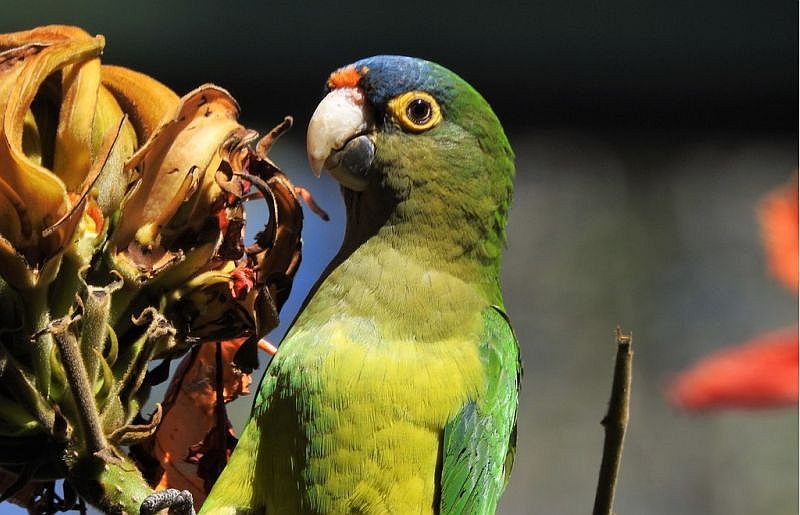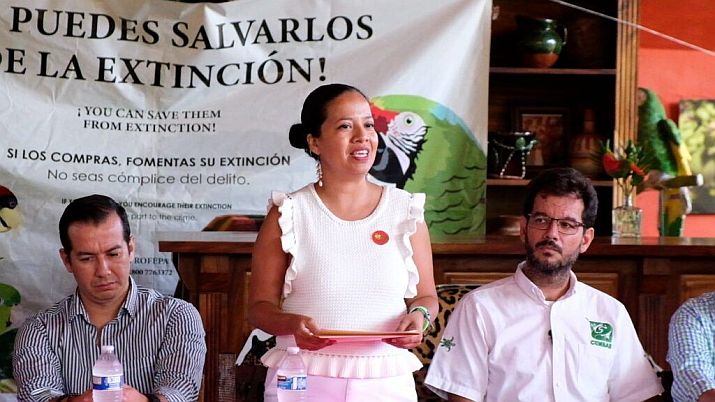
Puerto Vallarta, Mexico – As a result of the coordinated efforts of different civil associations and the invaluable work of the Puerto Vallarta Green Patrol, 40 orange-fronted parakeets (Eupsittula canicularis) that were in the hands of illegal traders were recovered, rehabilitated and returned to their natural habitat on June 10.
At the time of their rescue, the birds their were malnourished and dehydrated, in addition to having part of their feathers torn out so that they could not fly. Thanks to efforts by several civil organization, including the Conservation of Marvelous Species of Bahía de Banderas AC (CEMBAB), these species were rehabilitated and reintegrated into their environment.
City councilor Claudia Alejandra Iñiguez Rivera attended a ceremony recognizing the efforts made and the important moment that the parakeets were released and given a new opportunity at life. She expressed the need to continue making citizens aware of the importance of caring for our environment and the species that inhabit our natural surroundings, and not contributing to their illegal trafficking.

“Mexico is a biodiverse country and it is in our hands to conserve, preserve and restore, as well as maintain all the natural ecosystems in which living beings inhabit. We need to generate awareness and respect, learn to cohabit this planet in harmony with all forms of life. We are facing the threat of mass extinction generated by human activities such as trade and illegal trafficking of wildlife, some of them in danger of extinction, resulting in the loss of valuable species of both flora and fauna,” she said.
Rohini Velasco, president of CEMBAB, explained that the specimens were captured when they were adults, so handling and transfer cause them stress and other conditions that can lead to death. He specified that in this operation, 60 specimens were recovered, of which 40 of them survived. “The percentage of mortality in traffic, collection, transportation, purchase and sale, more than 80 percent die in this process; we managed that of the 60 specimens more or less 75-80 percent survived.”
He indicated that the birds that were reintegrated into their habitat had a 5-month recovery process, because in addition to the poor conditions in which they were found, part of their feathers were torn out, so they had to wait for them to regenerate. “When new feathers came out, somehow it made their release faster, because if they had cut their wings we would have had to wait almost a year for them to shed their feathers and grow new ones.”
The deputy director of the Environment, Ricardo Cerezo Ortiz, authorities from Profepa and representatives of the Puerto Vallarta Botanical Garden, among others, were present at the birds’ release ceremony.





